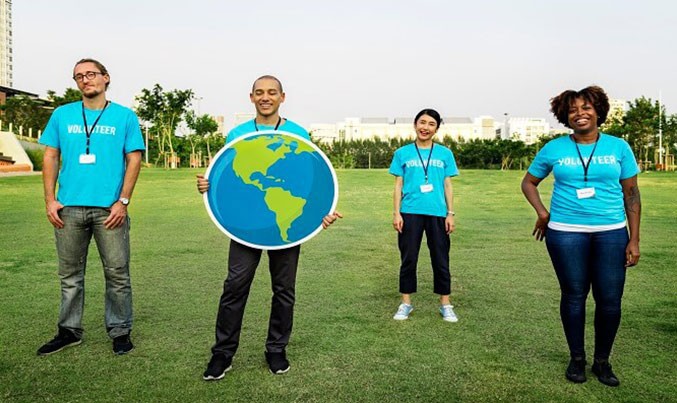A Contra-Partnership is essentially a give and take relationship. They are business deals which do not include monetary interactions. One may ask why businesses or Non-Governmental Organizations (NGOs) engage in such activities and what they gain from it. Fundamentally, NGOs who can manage contra-partnerships appropriately will, in turn, be given an abundant amount of opportunities. Apart from the recognition they receive, the networks they build, and the knowledge they receive from numerous partners, NGOs can possibly get more potential sponsors. Through successful partnerships, NGOs can gain access to various fundraising events for NGOs, corporate funding event ideas, information on funding organizations for NGOs, etc.
In this article, the type of partnership being referred to would be event partnerships. Typically, NGOs would partner with either fellow NGOs, agencies within the development sector, or corporations involved in CSR activities. The purpose of being able to attend these events would be to be able to network with potential sponsors, learn new NGO fundraising ideas, train employees to successfully manage the organization, and a means to be updated on the latest funds for NGOs, among other things. Such events would appreciate NGO presence and at the same time would like to be recognized by NGO followers for additional support. In return for the access passes given to NGOs, it is expected that NGOs would promote the event they are partnered with through their channels such as social media and other entities which would apply.
In order to gain such benefits from partnerships, NGOs need to first and foremost, follow the right procedure. Partnerships aren’t simply searched for and partnered with – a process will need to take place. AsianNGO has come up with processes that have been proven to be successful over time.
-
Define by theme
The first step in pursuing a partnership, similar to other tasks, would be to do proper research. As an NGO, what events would be of interest to your organization? All over the world, millions of events are happening every single day which targets various sets of participants and audiences. For an NGO, it would be most strategic to partner with events themes that involve NGO and nonprofit management, sustainability, corporate social responsibility (CSR), technology, education, youth, energy, climate change, disaster management, and health.
-
Identify the events
The best way to identify a particular event would be to research the conference organizers, associations, media companies, or event posting websites. Through the research, it will then be a lot easier to determine what to expect and what you can offer. It would also be best to keep a database for all researched events for future reference, whether a partnership with them was secured or not.
-
Contact the Organizers
One step closer to landing an event partnership would be to get in touch with the organizers to discuss the type of partnership your organization is targeting to close. Whether it be through email or a telephone conversation, make sure you are knowledgeable of their event. The last thing you would want the organizers to think would be that you are not taking them seriously. However, take note that the organizers will not expect you to know absolutely everything either as you are not a part of their committee. That being said, don’t be afraid to ask questions to clarify on matters you aren’t sure of. This also gives the organizers the idea that you are enthusiastic and interested in their event. Don’t forget to introduce your organization as well in a way that they would understand.
-
Negotiate
Once both parties have gotten a good grasp of what both organizations do and the main focus of the event, it’s time to determine what you can offer to one another. Remember that in a contra-partnership, the benefits are expected to be mutually beneficial. If in a regular business deal getting more for less would be desirable, a contra-partnership would focus more on building a lasting relationship with partners. Let them know that you value them and would like to continue working together.
-
Close partnership
Once the deliverables on both ends are acceptable to both parties, it would be time to close the partnership. Usually, this would take the form of a contract. Not only will this make the agreement official, but this can also serve as a guide to keep track if the deliverables are being accomplished on time.
-
Execute commitment
After both parties have signed the agreement, the partnership doesn’t end there, in fact, it is just the beginning. As a partner, it is necessary to assure the event organizers that you will be able to deliver with your side of the agreement without reminders. When executing the commitments, also keep partners updated to let them know that you are an active partner.
This contra-partnership process is considerably simple but can go a long way if it is done in the right order. Being able to attend events without stressing on the fees required can ultimately help NGOs gain numerous opportunities. Attending an event is like being in the right place at the right time. The possibilities for NGOs in such events are endless. Meeting or gaining access to foreign funding agencies for NGOs can be a possibility, amongst other benefits like gaining knowledge and wisdom from conferences and trainings.
Maintaining a good relationship with partners will not only give your NGO access to attending more of their events and gain exposure, but it will also lead you to gain invites from other organizations who view you as an effective partner. The more partnerships with the right kind of events, the more opportunities will arise for your NGO.











